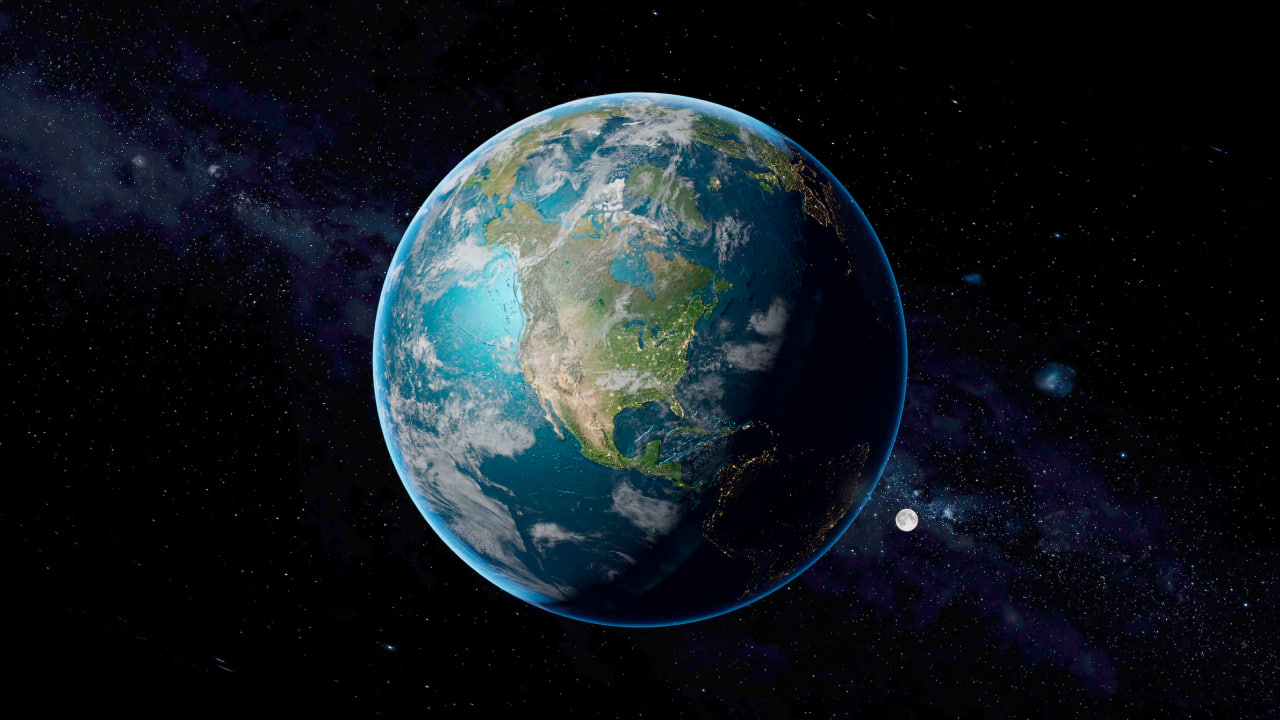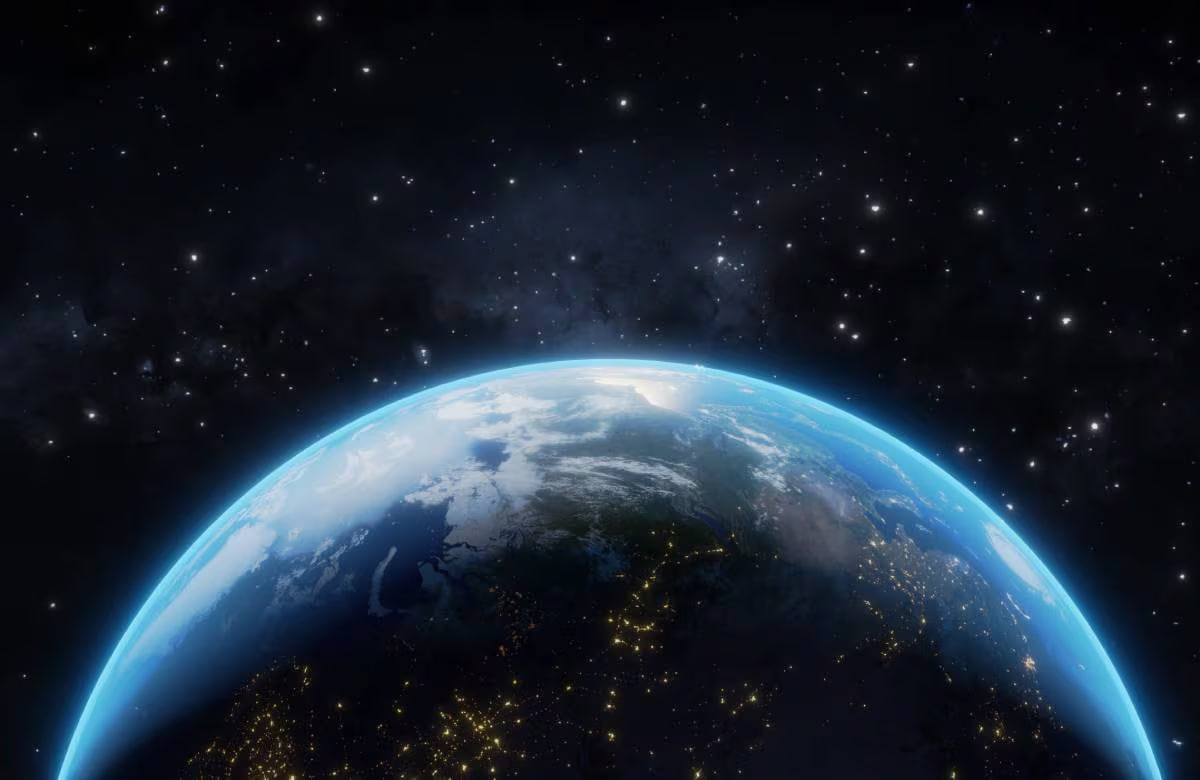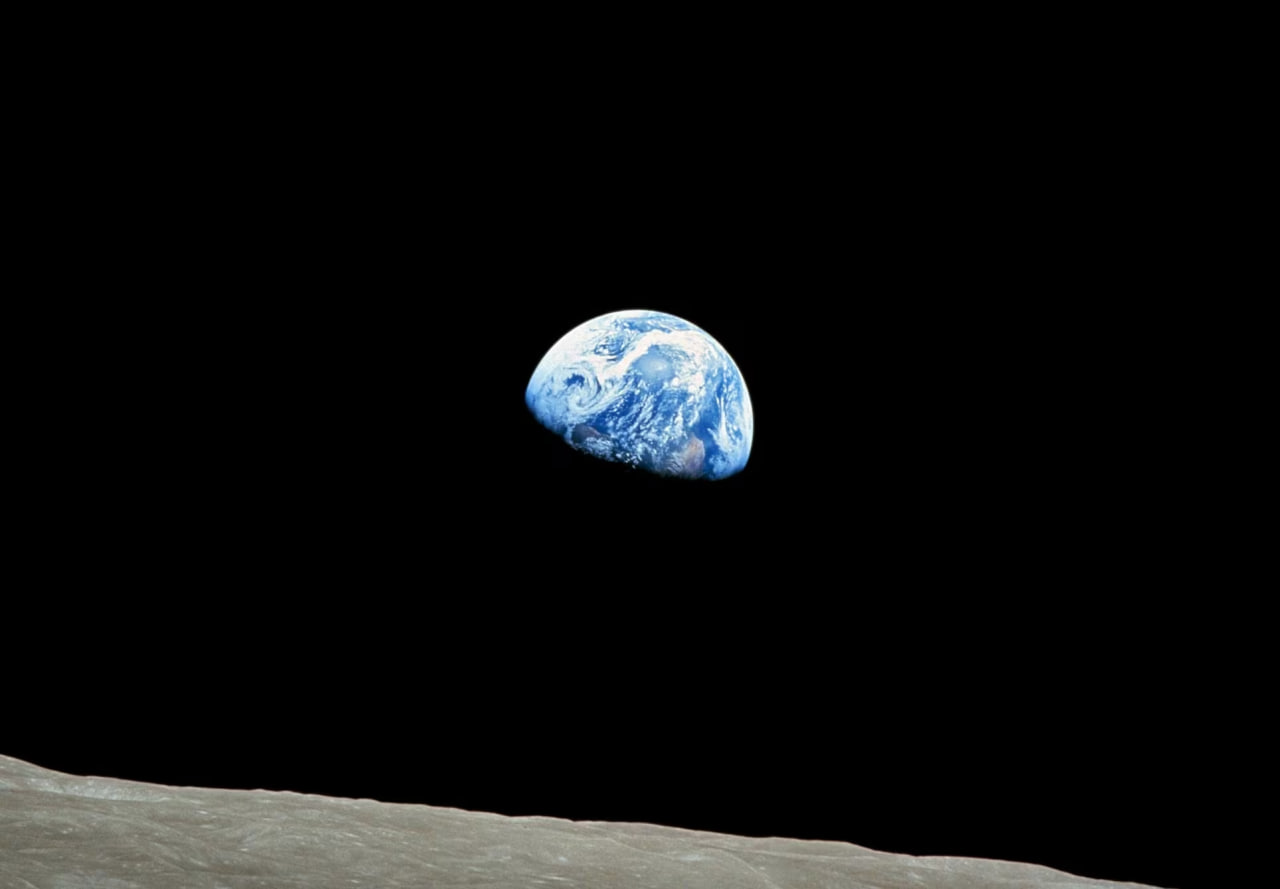On certain days this year, the planet Earth will experience an acceleration in its rotation that will shorten the days. Specifically, on 9 July, 22 July and 5 August, the Earth will spin faster due to the position of the moon, which will reduce each day by between 1.3 and 1.51 milliseconds, according to the magazine Live Science.
Although it may seem insignificant, this phenomenon exposes how cosmic factors influence the planet. The difference will not be noticeable in everyday life, but scientists can measure it accurately.

Why will the days be shorter on the planet?
The moon is responsible for this variation, as it will be at its furthest point from the Earth’s equator on those dates. When the moon approaches the poles, its gravitational influence changes the dynamics of planetary rotation.
It is as if someone were to change the way a spinning top is held; by changing the point of support, the speed of rotation is altered. This behaviour is part of a broader pattern of fluctuations that scientists have documented in recent years, including the shortest day on record on 5 July 2024.

Humanity also influences Earth’s rotation. Climate change-related movement of ice and groundwater increases the length of days by 1.33 milliseconds per century between 2000 and 2018, according to NASA calculations.
Even events such as earthquakes can affect the speed of rotation. For example, the 2011 earthquake in Japan shortened the day by 1.8 microseconds.
The seasons also have an influence because when trees in the northern hemisphere develop leaves in summer, they redistribute the Earth’s mass and subtly alter the planet’s rotation.

